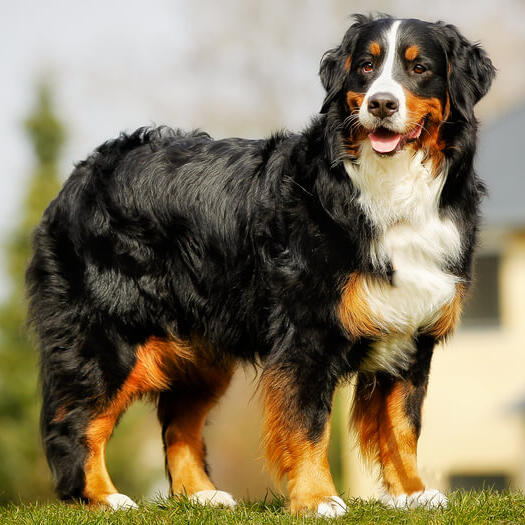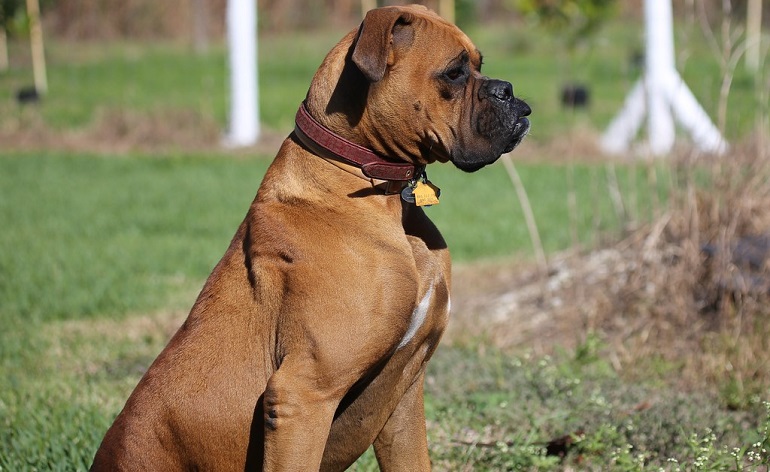Are Mastiff Mothers Really Able to Kill or Eat Their Puppies? It is very uncommon for it to be the case for a Mastiff mother to devour her pups or kill them, or for any other dog breed for that matter. In the majority of cases the maternal instincts kick in and the mother dog will take care of and protect her pups. Sometimes, a mother dog will get aggressive towards puppies when she's injured or is suffering. Mother dogs can accidentally crush or even smother puppies if she's not cautious or they're insufficiently tiny or fragile. The Mastiff mom and her pups must be in a safe and secure environment. The dog's mother should be able to access water and food. It's essential to keep the puppies dry and warm. Also, it is important to watch out for illness or aggression in the mother dog. To ensure your Mastiff's safety and well-being, consult a qualified trainer or vet should you have any questions. Socialization should be a priority for preventing aggression in dogs. It also helps ensure your Mastiff is well-behaved around other dogs, and even puppies. A trained dog behaviorist will help you address any concerns regarding your dog's behavior towards puppies and other dogs. Read the best
visit this best mastiff breeds for more advice.
 Can Male Mastiffs Stay Around To Rake Puppies?
Can Male Mastiffs Stay Around To Rake Puppies? In general, male Mastiffs will not be involved in raising puppies. Although male Mastiffs may take an interest in their pups and engage with them from time to time however, the majority of the tasks of caregiving are taken care of by the mother or the breeder. As with other breeds of dog like Mastiffs they have little to no involvement in rearing their offspring. Because Mastiffs do not belong to a pack of animals like wolves and other wild canids, they don't have the same social structure or behaviors that are associated with taking care of their children. However, certain male Mastiffs have strong bonds with their pups and exhibit caring or protective behavior towards them. But, this isn't an all-encompassing characteristic and Mastiffs can be different in their fascination and involvement.
What Time Do Mastiff Puppies Do They Calm?
Mastiff puppies are lively and playful and have plenty to play with as they develop and grow. They tend to settle down once they reach the age of adulthood. For Mastiffs, this is usually about two years old. Mastiff puppies are known to display a lot of energy and excitement during their initial year. They can also exhibit behavior such as mouthing, jumping and running. As they age and more settled, Mastiffs tend to become more relaxed and calm, and less likely to engage in high-energy behaviors. Of course, each Mastiff is an individual and there can be many variations in regards to their energy levels and behavior. Certain Mastiffs might be more calm and calm from the age of a child, while others may remain more active and playful into adulthood. As they age, Mastiffs become more calm and calm. View the best
tough dog meme for site info.
 How Many Times And For How Much Do You Need To Groom Your Cane? Corso
How Many Times And For How Much Do You Need To Groom Your Cane? Corso Cane Corsos possess a dense haired, short-haired coat which is very easy and simple to maintain. Here are some guidelines on the frequency and frequency you should groom your Cane Corso. Brushing: Brush your Cane Corso's hair at least every two weeks using an easy-bristled brush or grooming mitt. This helps remove dirt and hair that is loose, and also stimulates the skin for healthy coat growth.
Bathing- Cane Corsos do not need to be bathed unless they are particularly dirty or smelly. Apply a gentle shampoo to dogs, and be sure to clean the dog thoroughly.
Nail trimming: trim nails on your Cane Corso every 4-6 weeks or whenever you feel like it to if they're clicking on the floor. An abrasive pair of, nail clippers for dogs are all you need.
Cleaning your ears: Check your Cane Corso frequently for indications such as redness, discharge and bad smells. Use gentle, vet approved Ear cleaners using cotton balls or pads to wash the ears.
Brushing your Cane Corso’s Teeth - Make sure that you clean your dog's teeth at least once a week to avoid any potential dental problems. Make use of a dog brush and toothpaste or a damp washcloth if your Cane Corso doesn't tolerate brushing.
Grooming tools - Make sure that you invest in high quality grooming tools such as a slicker, or a rubber curry brush. This will assist in get rid of hair and dirt.
Cane Corsos need less grooming than other breeds. If you want your dog to be healthy and content it is crucial to brush their ears as well as trim their nails and clean out their ears. Take a look at the top rated
Cane Corso breed for blog examples.
 What Do Pyrenean Mastiffs Eat What, How Much And How Often Per Day?
What Do Pyrenean Mastiffs Eat What, How Much And How Often Per Day? Pyrenean Mastiffs' nutritional needs will differ based on their age, weight levels, activity level, and other variables. It is recommended to feed them premium dog food that is suitable for their age (pup adult, adult, and senior) because this can prevent digestive problems as well as bloating and other issues. Adult Pyrenean Mastiffs typically require 6 to 8 cups daily. This can vary based on the individual's needs and levels of activity.
Pyrenean mastiffs can be overweight when they are fed too much. This can lead to issues with joints and heart disease. To determine the right food and time to feed your Pyrenean Massif, you should consult with your vet. Check out the top
Pyrenean Mastiff information for more examples.
 What Is The Importance Of Obedience Training And Early Socialization Neapolitan Mastiffs?
What Is The Importance Of Obedience Training And Early Socialization Neapolitan Mastiffs? Mastiffs are able to learn obedience and socialization from a young age. Early socialization is important to ensure that your Mastiff puppy develops to be a well-adjusted, and well-behaved dog. It involves exposing the puppy to different people, animals, and situations, so that they learn to interact appropriately with their environment.Obedience training is also important for Mastiffs, as they are large and powerful dogs that can become difficult to control if not properly trained. Mastiffs will learn basic commands such sit, stay, and come. Also, they can learn good manners on leashes.
It is suggested that socialization be initiated at the earliest possible time. This should occur between 7 and 16 weeks old. As reinforcement and ongoing learning can help maintain a Mastiff's positive behavior and obedience, it is important to keep training them for the rest of their life. View the top
Neapolitan mastiff breed for blog tips. Read more
Best Tips When Buying The Best Mastiff Msftip 72c4421